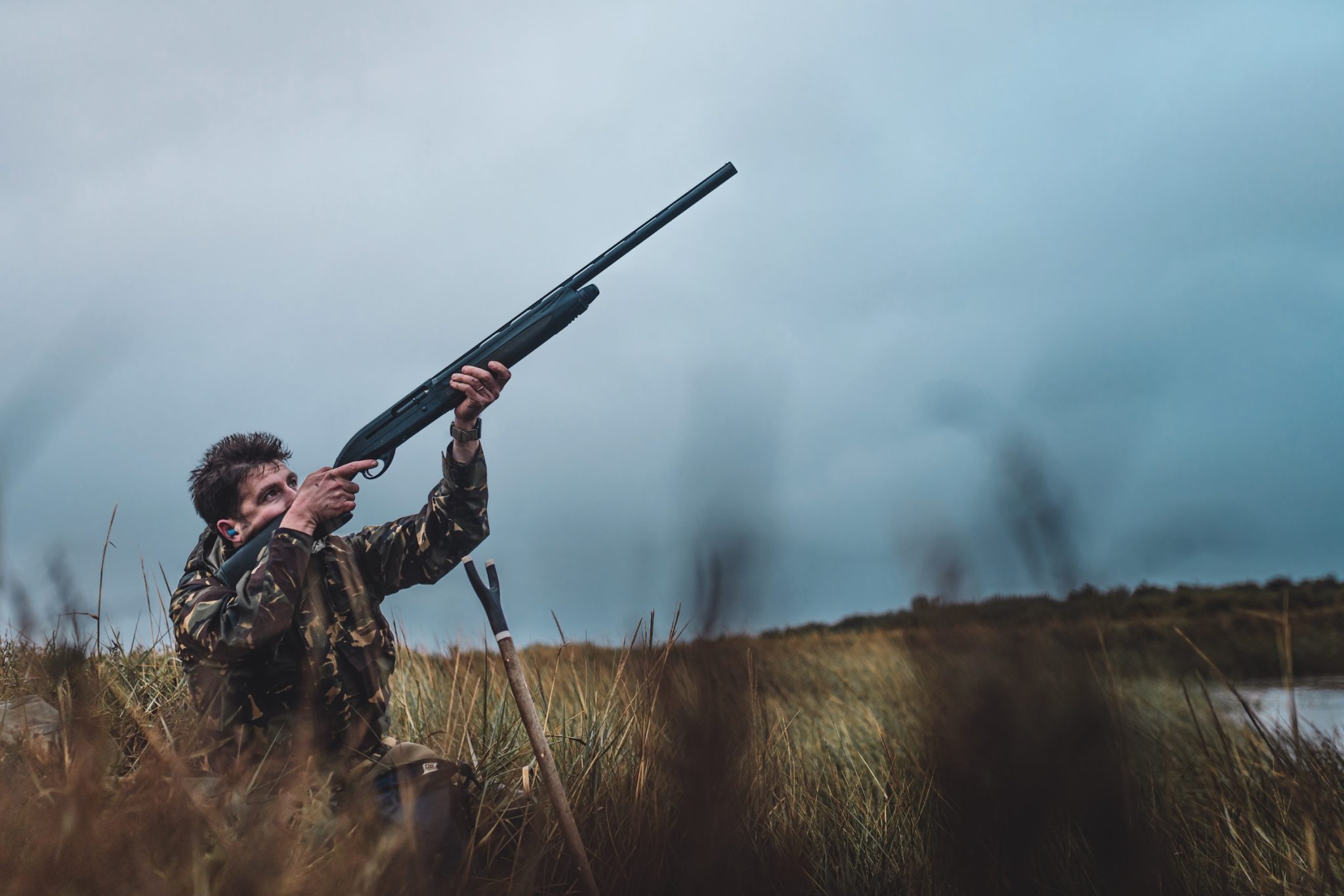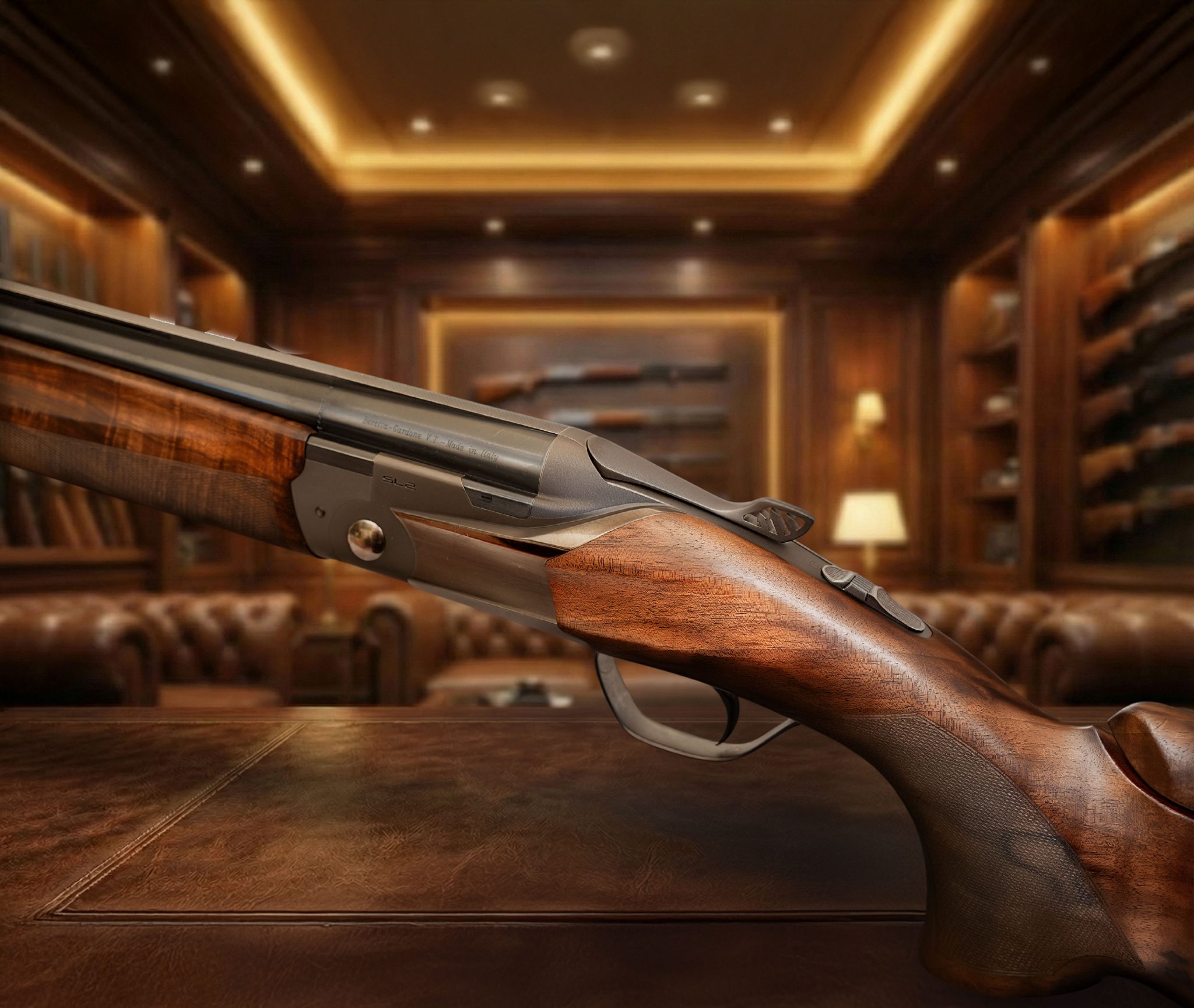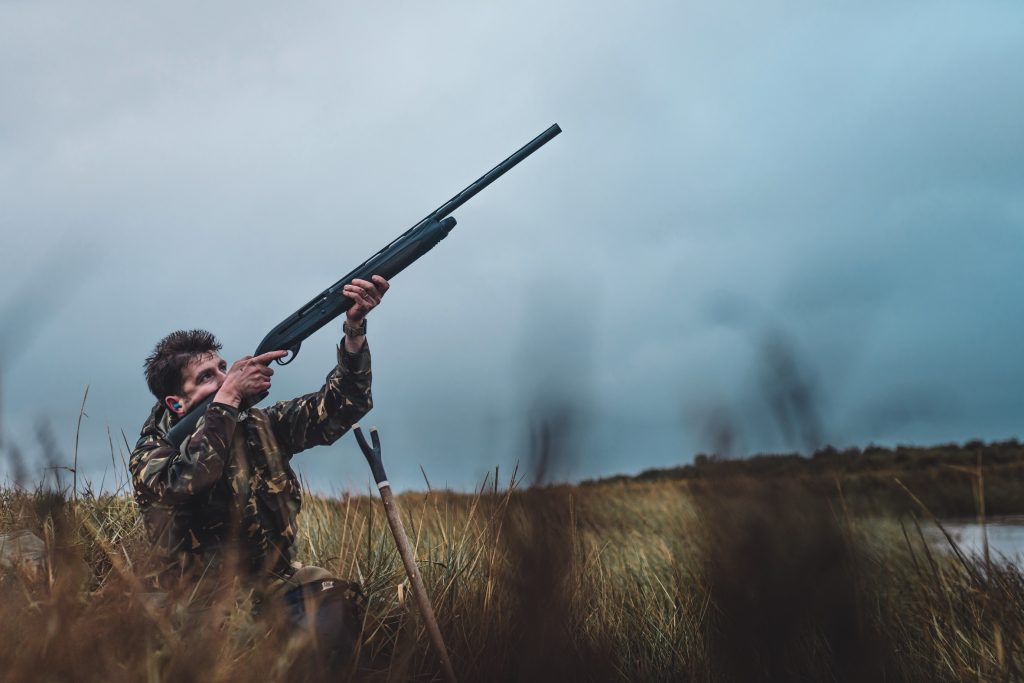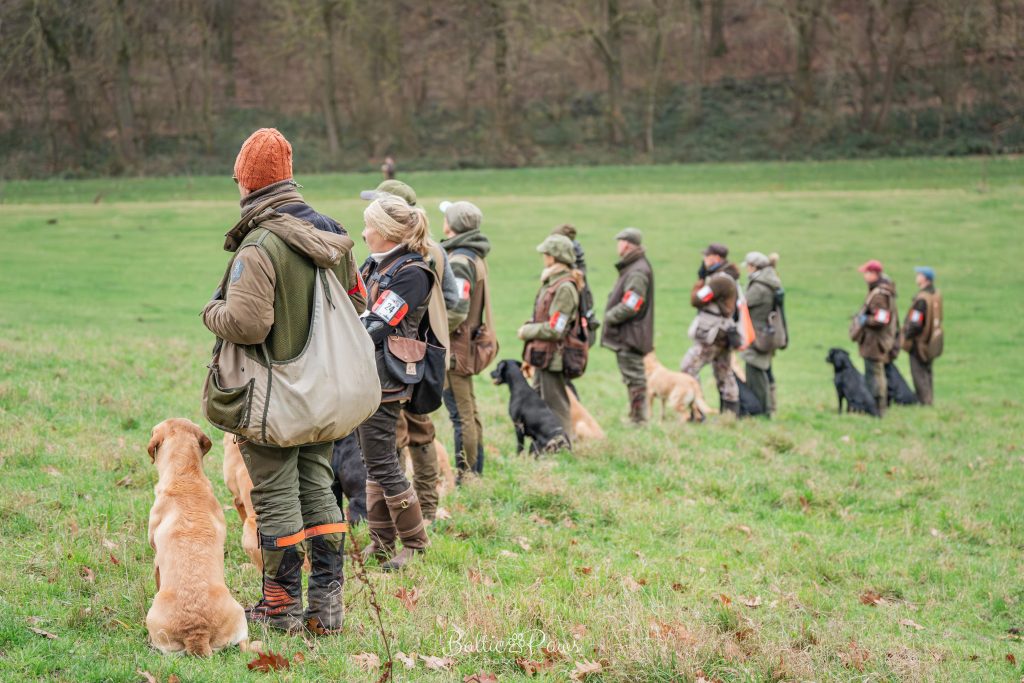The countdown is on for The British Shooting Show – book tickets online today and save on gate price!
What age should a youngster start shooting?
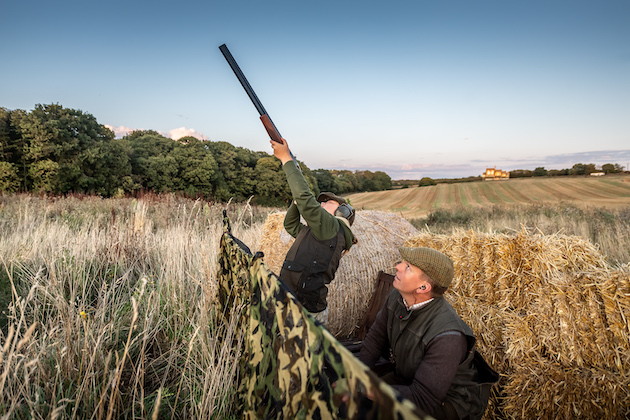 Duck flighting from a pond with Simon Garnham daughter Liz and labrador Tess
Duck flighting from a pond with Simon Garnham daughter Liz and labrador Tess
Eyebrows were raised at the last round of Home Office firearms licensing statistics when it was revealed that a seven-year-old had been approved for a shotgun certificate. That decision led to lively debate at my local clay ground. Opinions were split. A significant number of regulars felt that the decision offered fuel to antis and drew unnecessary attention to one of the last remaining liberal pieces of firearms legislation. Others expressed support for the decision, remembering that they, too, had begun shooting at a similar age.
The Home Office’s 271-page Guide on Firearms Licensing Law expresses three principles that must be met before a licence is granted. To obtain a firearm or shotgun certificate, the chief officer “must be satisfied that: (i) the applicant has good reason for having a weapon; (ii) the applicant is fit to be entrusted with a weapon; and (iii) the public safety or peace will not be endangered”. No one under the age of 15 may acquire a gun or use it without adult supervision. But children aged 14 may be granted a firearms licence and there is no minimum age for the granting of shotgun certificates.
The Home Office in its guide also observes a number of interesting principles. Unlike the US, “gun ownership is a privilege not a right”. The legislation acknowledges that “the subject of minimum age to carry a firearm or shotgun is complicated” and “it is in the interests of safety that a young person who is to handle firearms should be properly taught at a relatively early age”.
Which of us would not agree with this last observation? Like so many skills, children seem to learn much more quickly than adults. And so much of what a shooting day involves seems to suit childish ways. There is a strong argument to capture their interest as early as possible.
Short-sighted
Keen shooting friends of mine recently fostered an 11-year-old. It was not until the shooting season began that they were told on no account must he be allowed to be involved. This was a decision that ultimately contributed to the breakdown of the placement. He loved being around the dogs, riding with the beaters, cracking his flag and whooping as a pheasant broke cover. What better way for a child to let off steam and learn the values of teamwork and self-control? In time, it could have led to safe gun handling and the great sense of responsibility that privilege bestows. Were it not for the short-sightedness, ignorance or unnecessary caution of an overzealous social worker, he might well still be there.
Many of my fellow clay Shots feel that anything which encourages the young into shooting at an early age is to be praised. On the other hand, which of us would honestly claim we could trust a seven-year-old even to brush his or her teeth competently without supervision? Under what circumstances can it possibly be necessary for a young person to need their own certificate, when the law states that they must be supervised at all times anyway? The legislation acknowledges that a young person may “have the need to have an assembled shotgun in their possession on private land” for many legitimate purposes.
Mike Briggs, a clay shooting friend of mine, remembers: “My grandfather encouraged me out after rabbits with a single-barrel .410 from a very young age. It was some of the happiest hunting I’ve ever enjoyed.” Many readers will have similar recollections: pest control is certainly a job that a child can handle. Additionally, large numbers of young people enjoy clay shooting and are competent in it. Just as young tennis players, golfers or cricketers learn their skills almost as soon as they can stand, good shooting should be taught early. Golf clubs and cricket bats wielded without care can be dangerous but, with supervision, children learn the joy of hand-eye coordination remarkably quickly. Swimming and riding a bike have their perils, but with care and sensible tutoring, children learn mastery very quickly.
So what is the right age to start?
At the clay ground, most fellow Shots suggest that this depends on the child in question. Jim Thompson, who has raised four shooting children, says he allowed them to be younger and younger when they began. Jim’s eldest did not learn to shoot until he was 14, but his youngest is already accounting for driven pheasants at the age of 11. “I must be getting soft in the head,” he says. “But as long as they are safe, keen, have the requisite manners and understand the sport, why not?” Some children develop more swiftly than others. Like so many things — training a dog springs to mind — some lessons are best not rushed. Chainsawing and driving are similarly perilous. Powerful equipment deserves careful, slow tutoring.
Sporting education
Richard Negus’s excellent articles charting his son’s sporting education reveal that there is so much more to shooting than safe gun handling. Richard shows that fieldcraft, natural history, patience and enthusiasm need to be fostered before any lessons on pulling a trigger can even be considered. Many children — my own included — enjoy games of ‘man-hunt’ in the dark, practising their camouflage and concealment, their observation skills and their endurance. Other children love simply being with the dogs or out and about in the wild. Once this type of interest is fostered, then it’s probably time to introduce a bit of plinking with an air rifle in the garden. These types of lesson can be as enjoyable for a five-year-old as a 50-year-old.
Like so many things, there is a huge level of judgement required and many steps on the path to becoming the complete sportsperson. I tell young parents that it’s very important to encourage natural history interests. My daughter and son have been engrossed in dormouse, turtle dove and blue butterfly projects. Pond digging can be every bit as exciting as clay shooting, especially when tadpoles start doing their thing. It’s never too early to sow the seeds, but worth also remembering that children can have heightened emotions around animals and it’s wise to go easy when they’re young. I remember my oldest godson picking up a mallard that his father had just accounted for on a fabulous duck drive. He held it, stroked it gently and whispered, “Sleep ducky”. Fortunately, he’s since gone on to become a very well-rounded and passionate fieldsportsman. The hunting instincts run deep and kick in very young, but can be confusing for the very youngest.
Father’s advice
How many other readers were made to learn A Father’s Advice before being allowed to pick up a gun? I suspect I will still be able to recite what one must ‘never, never’ do, even when old and senile. I often find myself muttering it when a woodcock jinks low across the front of the line. Hold on Garnham… Stops and beaters, oft unseen; Lurk beneath some leafy screen; Calm and steady always be; Never shoot where you can’t see.
One measure of being ready that seems still to be sensible is the ability to remember what to do “when a hedge or fence you cross”. Never can a truer word have been written than “All the pheasants ever bred, won’t repay for one man dead” and committing it to memory seems a valid barrier to entering the shooting world.
Mark Hanbury Beaufoy’s 1902 poem is as relevant today as it was more than a century ago.
It ain’t broke
The legislation seems not to be ‘broke’ when it comes to the ages of applicants, so I am certainly not proposing that anyone should seek to fix it. According to the Home Office statistics on shotguns and firearms certificates for 2020, a total of 247 children aged 13 or under legally hold a certificate and 2,764 between the ages of 13 and 17. This seems a low number in a total of half a million licences (586,351).
Against a UK population of more than 66million, it can be seen that shooters are fewer than 1% of that total. The vast majority — 95% — are male and 60% are over the age of 50. How good, then, that younger certificate holders are being encouraged. I would offer congratulations to the eminently sensible licensing officers who are supporting our next generation.
Related Articles
Get the latest news delivered direct to your door
Subscribe to Shooting Times & Country
Discover the ultimate companion for field sports enthusiasts with Shooting Times & Country Magazine, the UK’s leading weekly publication that has been at the forefront of shooting culture since 1882. Subscribers gain access to expert tips, comprehensive gear reviews, seasonal advice and a vibrant community of like-minded shooters.
Save on shop price when you subscribe with weekly issues featuring in-depth articles on gundog training, exclusive member offers and access to the digital back issue library. A Shooting Times & Country subscription is more than a magazine, don’t just read about the countryside; immerse yourself in its most authoritative and engaging publication.



